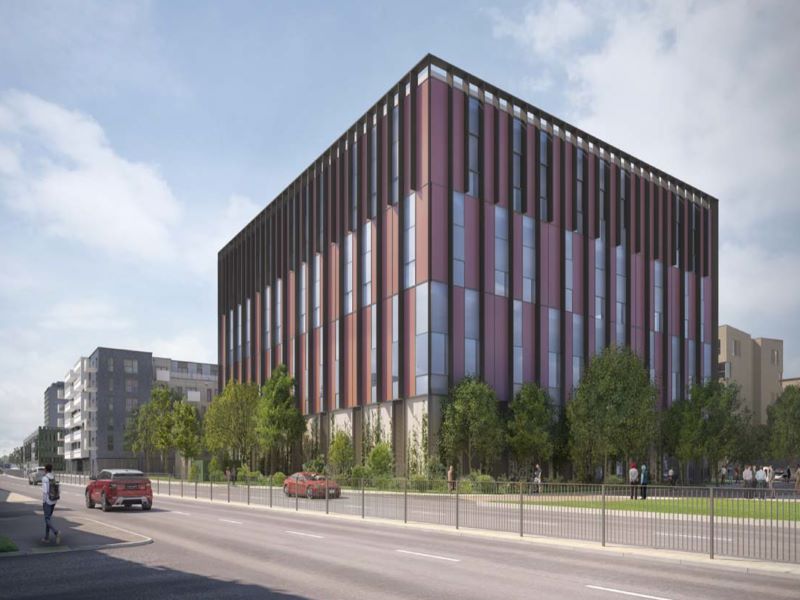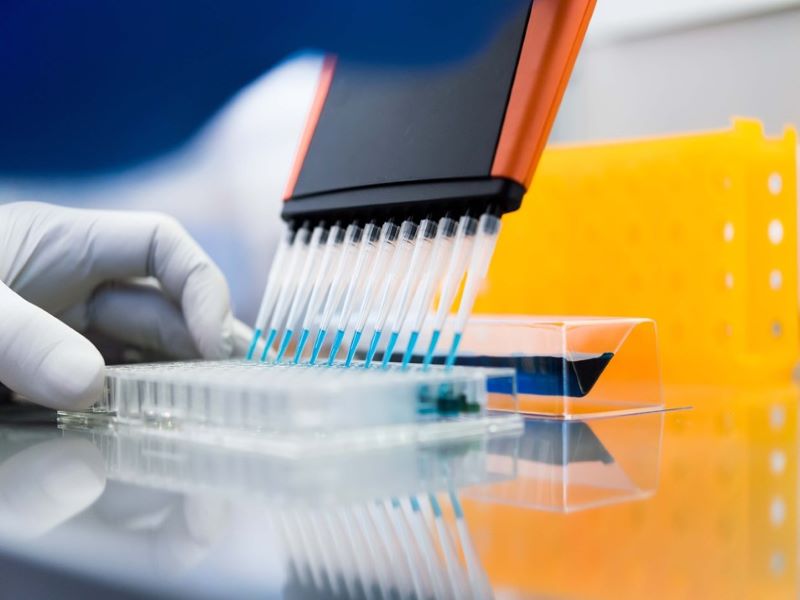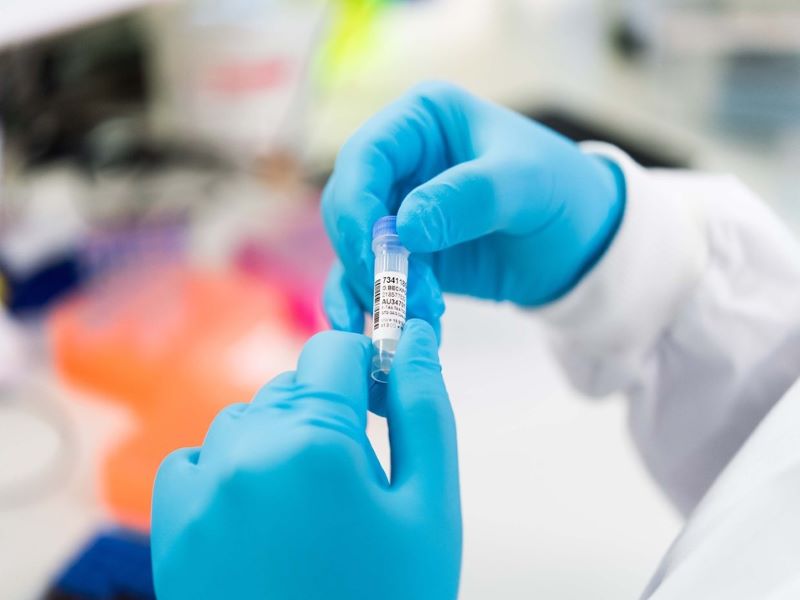Autolus Therapeutics, a biotechnology company based in the UK, has built a facility, named The Nucleus, in Stevenage, UK, to manufacture chimeric antigen receptor (CAR) T-cell therapies for cancer treatment.
The facility is intended to provide good manufacturing practice (GMP) capacity for the development and commercial supply of Autolus’ investigational CD19 CAR T-cell therapy, Obecabtagene autoleucel (Obe-cel, AUTO1).
The facility can manufacture and process 2,000 batches each year, with opportunities to expand further. The development of the facility has generated 400 jobs in Stevenage.
Location
The site is part of the open innovation campus Stevenage Bioscience Catalyst, the third largest cell and gene therapy cluster in the world.
The site supports the expansion of the Stevenage Bioscience Catalyst, which accommodates GlaxoSmithKline, the Cell & Gene Therapy Catapult Manufacturing Centre, LifeArc and Cytiva, plus more than 40 other startup companies.
The facility is part of a broader initiative to establish a life sciences district in Stevenage by Reef Group and UBS Asset Management.
The facility was developed by Reef Group, which pre-let the site to Autolus under a 20-year lease agreement.
Autolus Therapeutics’ CAR T-cell facility development details
Autolus received planning permission from Stevenage Borough Council for the development of the facility in September 2021. The ground-breaking ceremony for the facility took place in November 2021.
Autolus took possession of the first of three clean rooms at the new facility in November 2022, allowing the company to commence manufacturing critical therapies. The company completed the final equipment installations and validation in the first quarter of 2023, while operational engineering trials began in the second quarter.
In March 2024, the Nucleus manufacturing facility secured a Manufacturer’s Importation Authorisation (MIA) together with a GMP certificate after GMP inspection by the UK’s Medicines and Healthcare Products Regulatory Agency.
The authorisation enabled Autolus to manufacture products for global commercial and clinical supply from the new facility.
The Cell & Gene Therapy Catapult facility, an existing cell and gene therapy manufacturing facility, supported the initial global commercial launch capacity for Obe-cel until the CAR T-cell production facility was opened.
Autolus Therapeutics’ The Nucleus facility details
The state-of-the-art manufacturing facility was built on a 7,500m² (80,729ft²) area with four storeys within a 70,000ft² site in Stevenage. It is the UK’s first purpose-built CAR T-cell manufacturing unit and Autolus’ manufacturing headquarters in Europe.
The facility is equipped with state-of-the-art cleanrooms designed to maintain strict environmental controls and prevent any contamination during the CAR T-cell manufacturing process.
The Nucleus facility design
The facility incorporates the FLEXI POD hybrid solution, an advanced approach for complex high-technology facilities. The approach combines modern construction methods for the building’s structure with an offsite manufactured fit-out, achieved through a Pre-Assembled Module and POD strategy. The approach allows for efficient and effective construction and assembly of the facility.
The offsite construction process allowed the preassembling of 300 PAMs and 15 UltraPODs with a combined weight of 900t. The pre-assembled components were then transported to the Stevenage location for installation.
The strategic use of offsite manufacturing significantly reduced the construction timeline, minimised disruption on-site and ensured that the highest quality standards were met.
Cleanroom equipment details
The cleanroom is equipped with two MAL50 decontamination chambers, fitted with inlet and extract valves ducted into customer HVAC, a three-valve air handling system, aeration units, a building management system, a pressure relief HEPA/CAT filter pack, an H₂0₂ generator, a remote control panel and a pneumatics panel.
The unloading door of chamber two is placed at a right angle to the loading door, in accordance with the customer’s cleanroom setup. The gas cycle development in chamber one resulted in a cycle time of just over one hour.
The cleanroom also features 11 wall-mounted pass-through hatches, measuring 600mm wide, 1200mm high and 1009mm deep, made from 304L grade stainless steel and 10mm thick toughened clear glass. The pass-through hatches include HEPA filters on the input and extract valves.
Sustainability features
Autolus developed the facility with a focus on strong environmental credentials to achieve the Building Research Establishment’s Environmental Assessment Method (BEEAM) Excellent rating.
It features several carbon-reduction solutions, including heat source pumps and heat recovery systems, to achieve net zero-carbon emissions.
The site’s carbon emissions were minimal as 75% of the construction work was performed off-site.
Financing
Reef Group’s funding partner UBS Asset Management provided forward funding of £66m ($91.2m) for the project.
The project also garnered support from key stakeholders, such as the Hertfordshire Local Enterprise Partnership.
Autolus’ Obe-cel details
Autolus designed Obe-cel to improve the clinical activity and safety of existing CD19 CAR T-cell therapies. It has a fast target binding off-rate to reduce the overactivation of programmed T-cells and can decrease toxicity and be less susceptible to T-cell depletion, which may improve endurance and the ability of the programmed T-cells to engage in the vigorous killing of target cancer cells.
Autolus and its academic partner, University College London, evaluated Obe-cel in Phase I clinical trial in two indications, acute lymphoblastic leukaemia (ALL) and B-cell non-Hodgkin lymphoma.
Obe-cel has been evaluated in a potential pivotal Phase Ib/II clinical trial, FELIX, for its overall response rate, duration of response, minimal residue disease negative complete response rate, and safety in the treatment of ALL in adults. The study results supported the company’s biologics licence application (BLA) for Obe-cel to the US Food and Drug Administration (FDA). The FDA accepted the BLA for review in January 2024.
Obe-cel was granted the FDA’s orphan drug designation and regenerative medicine advanced therapy designation and the European Medicines Agency’s orphan medical product designation and PRIority MEdicines (PRIME) designation for adult refractory/relapsed (r/r) B-cell acute lymphoblastic leukaemia (B-ALL).
The EMA accepted a marketing authorisation application for obe-cel for patients with r/r (B-ALL) in April 2024, based on a pivotal Phase II FELIX study.
Contractors involved
Merit, a specialist design, engineering and construction company based in the UK, was appointed as the main contractor for the facility. Merit’s FLEXI POD and PAM standard platform construction processes were used in the facility’s construction.
Merit selected Norder Design Associates, a UK-based building consultant, to provide architectural drawings and design for the project.
EEDN, a UK-based project and programme management consultant, was selected to deliver an operational quality control (QC) lab on the second floor of the facility. The scope of work also involved a phased relocation of existing QC labs from the GSK site in Stevenage to the new facility, while maintaining accreditation.
PBSC, a cleanroom, high containment and material decontamination products manufacturer based in the UK, supplied cleanroom and decontamination solutions that are integral in decontaminating Autolus’ equipment used for the manufacture of its products.





